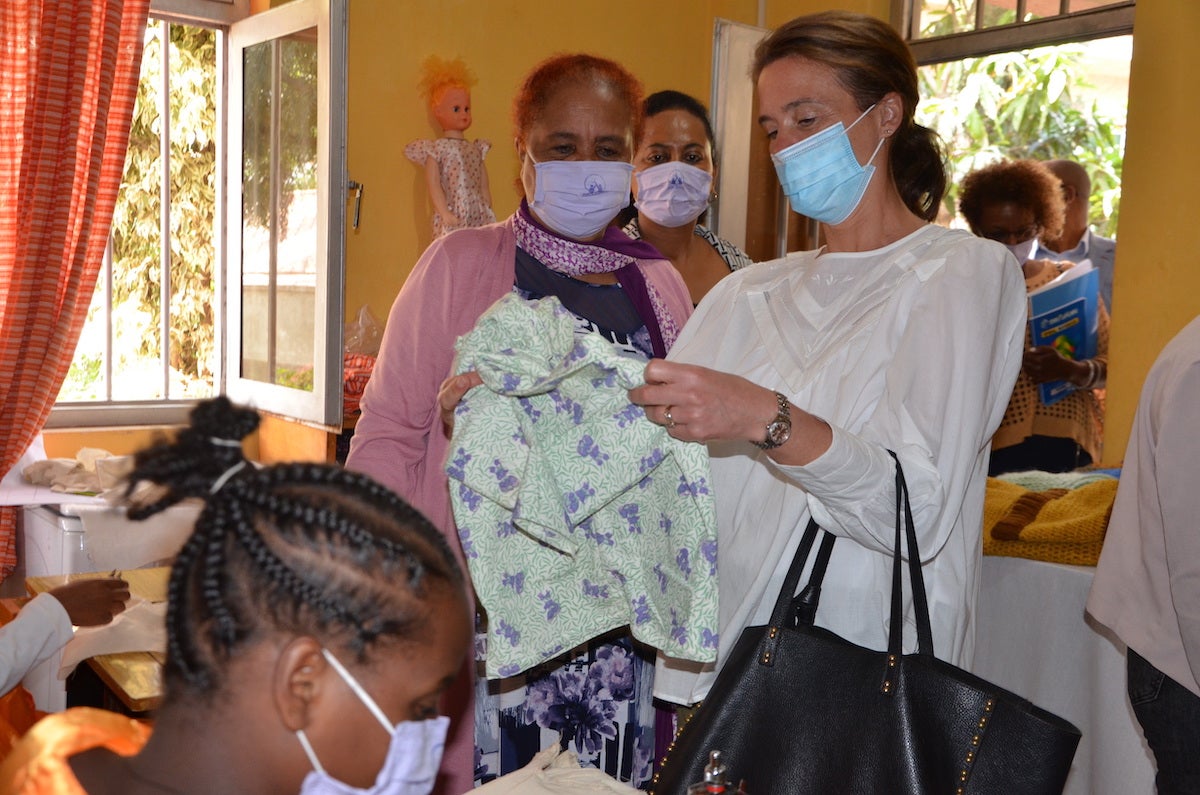
Ending Violence Against Women and Girls programme

Violence Against Women and Girls (VAWG) is one of the most systematic, widespread human rights violations faced globally. In Ethiopia, VAWG continues to be a major challenge and a threat to women’s empowerment and wellbeing. According to the Ethiopian Demographic and Health Survey (2016), women aged 15-49, nearly one fourth (23 percent) have experienced physical violence while 10 percent have experienced sexual violence. At least one out of every three women (34 percent) in Ethiopia has experienced spousal violence.
Despite some legislative and institutional measures, several factors continue to hamper women and girls to live a life free of violence. The key challenges include discriminatory attitudes and behaviors towards women and deep-rooted traditional norms that perpetuate and falsely pretend to justify VAWG; gaps in the legal framework and limited enforcement of progressive laws and policies; limited availability and accessibility of quality comprehensive essential services for survivors and inadequate data and systematic information collection and use on VAWG.
To address the challenges, the following comprehensive programme approaches are being used by UN Women’s Ethiopia Country Office:
Protection: Create an enabling legislation and policy environment in line with international and regional normative standards on EVAWG through supporting advocacy efforts for the adoption of gender sensitive legislation and policies including the adoption of comprehensive laws on VAWG, its interpretation and implementation through building capacity of law enforcing bodies to better prevent and respond to VAWG.
Prevention: Promote favourable social norms, attitudes and behaviours at community and individual levels to prevent VAWG- For women and girls to enjoy greater freedoms and rights within their community, the root and structural causes of violence need to be addressed through effective prevention strategies. The programme supports various strategies such as community mobilization, mobilizing religious leaders, media campaigns, putting in place favourable education curriculums and media strategies that address VAWG, and promoting VAWG free public spaces, schools and communities.
Provision of services: Enhance availability and accessibility and use of comprehensive quality services through the establishment and strengthening/support of survivor-centered essential services (social, health and justice) including shelters, one stop centers, hotlines, free legal aid centers; standardizing services, building capacities of service providers on standard service provision protocols as well as improve coordination and referrals among service providing institutions.
Coordination: Support the establishment and strengthening of the National Coordinating Body on prevention and Response to Violence against Women and Children (NCB). While formation of the NCB at federal level is remarkable, it is similarly crucial to establish and strengthen parallel coordination bodies in all regional states in Ethiopia. These coordination mechanisms are vital to ensure effective coordination among relevant stakeholders on the prevention and response of VAWG.
Evidence generation and data: Availability of VAWG prevalence and administrative data is limited in Ethiopia. Supporting national level studies including periodic demographic and health survey and VAW module as well as strengthening administrative data management systems at the service provision points is critical in ensuring evidence-based interventions.